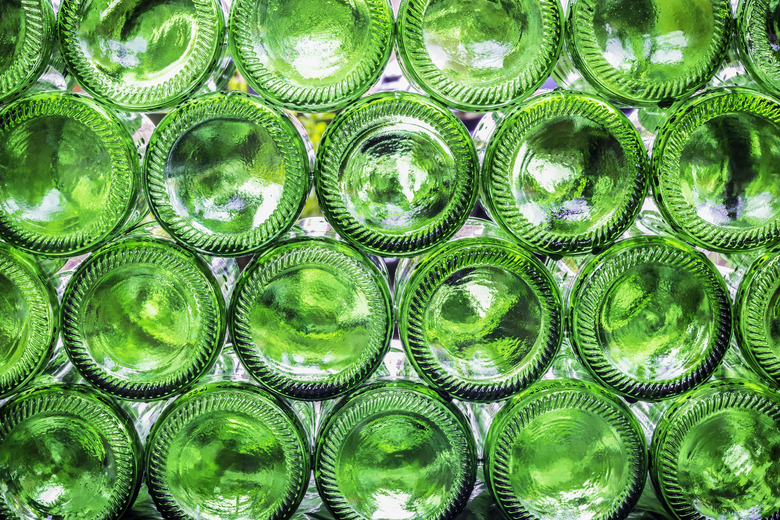What Things Will Not Decompose?
With all the attention green, sustainable living has been getting, it is surprising and shocking to learn how much material discarded every day will effectively never decompose. Some substances cannot be recycled and must be thrown away, but others, like glass, can be recycled but are often not. Much of the science of long-term decomposition is theoretical at the moment, because the time scales required for good data collection are prohibitively long, but there is consensus that certain things just don't decompose.
Glass
Glass
Glass can be recycled over and over again with no loss of quality, but when discarded and dumped into a landfill, it does not decompose. Even if the glass object is broken, it just splits apart into smaller and smaller fragments. Those fragments, particularly if from modern, industrially manufactured glass, do not lose mass to the environment. Microorganisms do not recognize particles of glass as food, so the chemical structure of the glass is maintained. Every day, large amounts of glass are discarded thoughtlessly. Landfill glass will sit for staggering lengths of time without breaking down.
Polystyrene Foam
Polystyrene Foam
Polystyrene foam, made famous by the brand Styrofoam, is used to make industrial insulation, disposable cups and packaging material, along with many other uses. Polystyrene foam can not be recycled, is toxic to burn and has low reuse value; it is thus disposed of in huge quantities around the world. Because it is similar chemically to plastic, this kind of foam does not decompose and will maintain its shape for thousands of years unless physically broken.
Plastic
Plastic
Plastics, particularly plastic bags, do not decompose in landfills. Plastic bags, along with most other plastics, are made from polyethylene, a polymer created in a laboratory. The single-celled organisms that drive decomposition don't consume the bits of the polymer even when surrounding materials are decomposing actively. Although plastics don't break down because of microbial action, they can eventually fall apart from the sun's ultraviolet light. However, because modern plastics were so recently developed, it is unknown exactly how long it might take sunlight to completely degrade plastics.
Metal
Metal
Metal materials, like iron rivets or sheets of steel, eventually fall apart but do not decompose like other materials. Small pieces of certain kinds of metal, like tin cans, will, after about 100 years, rust and flake away into the atmosphere. However, larger pieces of metal and metals not susceptible to rust do not degrade. Metal is also not biodegradable, because microorganisms in landfills do not consume metal particles for nutrition.
Cite This Article
MLA
Freeman, Mary. "What Things Will Not Decompose?" sciencing.com, https://www.sciencing.com/what-things-will-not-decompose-13373492/. 28 December 2018.
APA
Freeman, Mary. (2018, December 28). What Things Will Not Decompose?. sciencing.com. Retrieved from https://www.sciencing.com/what-things-will-not-decompose-13373492/
Chicago
Freeman, Mary. What Things Will Not Decompose? last modified March 24, 2022. https://www.sciencing.com/what-things-will-not-decompose-13373492/
